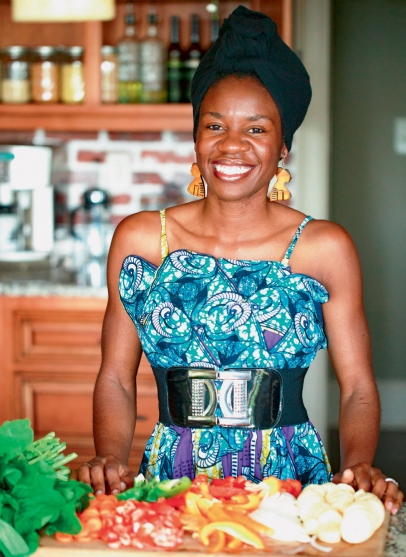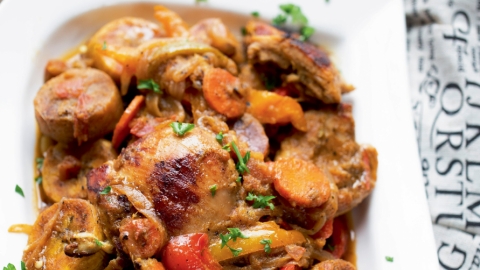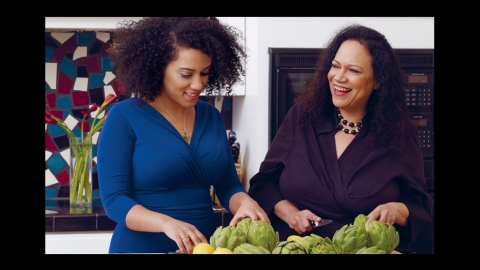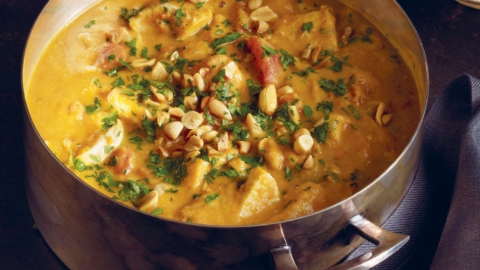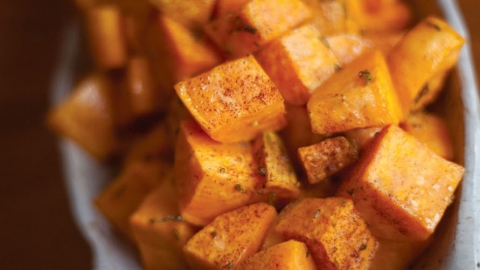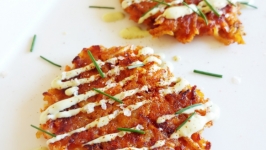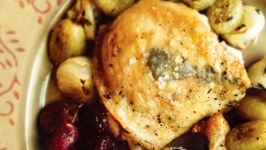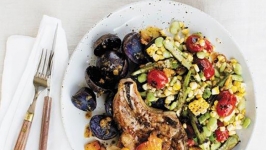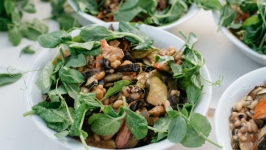West African Cooking with Blogger Elsie Kriz
After just two minutes on AfroVitality Eats, the blog and brainchild of Elsie Kriz, I knew what had been missing from my life: West African food. Fortunately, it wasn’t long before I was on my way to Columbia, TN being welcomed into Elsie’s home for an authentic Cameroonian feast. I arrived at lunchtime and was greeted with a friendly hug and the irresistible aroma of chicken, fresh herbs, and spices sautéing in a paella-style pan, along with a glass of Elsie’s homemade hibiscus tea. As we moved into the kitchen, Elsie continued stirring as she spoke, relaying with fondness her childhood in Cameroon, where her love of cooking blossomed. “As an African woman, you have to know how to cook. We’re taught that the way to a man’s heart is through his stomach. So, you grow up cooking with your mom in the kitchen. My mother served the food—always—and we all ate together as one. Our food came from the bounty of our lands; healthy, unprocessed, and flavorful.”
Despite Nashville’s burgeoning global food scene, there’s a real dearth of African restaurants in the city, West African in particular, which is why Elsie started her blog afrovitalityeats. com and her pop-up dinners in private homes. “We cook together, we eat together” is Elsie’s motto, but her real goal is empowering people to cook West African food on their own. “I want people to know it’s accessible to them, with ingredients they likely already have in their kitchen.”
Indeed, the most exotic thing in the dish Elsie served were the plantains—thick and meaty and lending just the right amount of sweetness to the otherwise rich and savory flavors. Known as Poulet DG, or “Director General Chicken,” Elsie explains that her mother reserved the meal for when special guests came to visit.
A pharmacist by day, Elsie is kept busy with a full-time job, a husband, and a young daughter, but cooking is her passion, and AfroVitality Eats is the vehicle through which she shares that passion with others.
Cameroon is a fertile, diverse land, with staples ranging from maize and yams to potatoes and beans. Colonized repeatedly over the course of its history, European cooking techniques were long ago introduced. Today they mingle with more traditional methods, resulting in a blend of new and old, familiar and exotic, that makes Cameroonian cuisine super accessible.


